Por qué el terroir es importante en el cannabis: la ventaja del suelo de Texas
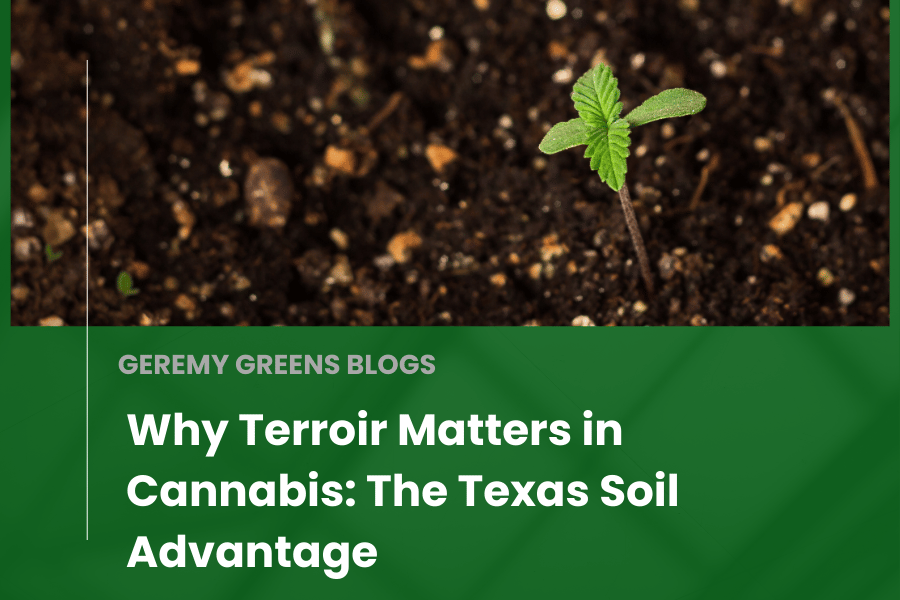
Si ha escuchado el término “terroir” en el mundo del vino, ya comprende el concepto: el terroir se refiere a cómo las condiciones ambientales de una región específica impactan el sabor, el aroma y el carácter general de un producto agrícola.
Pero lo que quizás no sepas es esto: el terroir también juega un papel importante en el cannabis .
En Geremy Greens Farm, cultivamos flores con THCA en lotes pequeños con la mirada puesta en la expresión local. Y aquí en Texas, nuestro suelo único, nuestros ciclos solares y nuestro clima nos ayudan a producir flores que no solo son fuertes, sino también claramente locales.
Analicemos por qué el terroir es importante en el cannabis y qué hace que las flores de THCA cultivadas en Texas sean verdaderamente únicas.
¿Qué es el terroir en el cannabis?
Terroir (pronunciado ter-wahr ) es una palabra francesa que se refiere al «sentido de lugar» en la agricultura. Incluye:
-
Composición del suelo
-
Clima y tiempo
-
Exposición a la luz solar y elevación
-
Microbios y microorganismos en el entorno de crecimiento.
En el cannabis, el terroir afecta:
-
Expresión de terpenos (sabor y aroma)
-
Desarrollo de tricomas (potencia y pegajosidad)
-
Rendimiento y perfiles de cannabinoides
-
Densidad y apariencia de los cogollos
Piénsalo como la esencia de la naturaleza. Dos fincas pueden cultivar la misma variedad con las mismas semillas, pero obtener resultados completamente diferentes debido al terroir.
Terroir de Texas: ¿Qué lo distingue?
Texas es conocido desde hace mucho tiempo por su ganado, algodón y petróleo, pero el Estado de la Estrella Solitaria también se perfila como un serio competidor en el cultivo artesanal de cannabis . Exploremos los factores específicos del terroir que hacen único al cannabis cultivado en Texas.
1. Composición del suelo: rico en minerales, con drenaje natural.
Gran parte del centro y norte de Texas se asienta sobre un antiguo lecho de roca caliza, con una capa superficial de suelo franco arcilloso que retiene los nutrientes y drena de manera eficiente, perfecta para que las raíces del cannabis respiren y absorban minerales.
Ventajas clave:
-
Altos niveles de calcio , magnesio y hierro.
-
Favorece la salud de los hongos micorrízicos , que potencian la absorción de nutrientes.
-
Equilibra naturalmente el pH, reduciendo la necesidad de insumos químicos.
Los cultivadores artesanales de Geremy Greens Farm trabajan con agrónomos locales para probar y modificar el suelo para que cada lote refleje el terroir natural, sin comprometer la salud de las plantas.
2. Intensidad de la luz solar: más lúmenes = más terpenos
Texas tiene un promedio de más de 230 días de sol al año , lo que proporciona a las plantas de cannabis el espectro de luz constante que necesitan para desarrollar una cobertura espesa de tricomas y terpenos complejos.
Por qué es importante:
-
Más luz = más energía para la planta = mejor producción de cannabinoides y terpenos
-
La alta exposición a los rayos UV desencadena la producción de resina protectora , lo que significa cogollos más escarchados.
-
El sol de espectro completo ayuda a expresar compuestos de sabor natural que no se pueden replicar en interiores.
Las flores cultivadas al aire libre y en invernaderos en Texas capturan esa energía solar pura y la traducen en un sabor más rico y un mejor atractivo para la nariz.
3. Grandes oscilaciones de temperatura: entrenamiento natural contra el estrés
El cannabis prospera bajo estrés leve , y Texas lo ofrece con días calurosos y noches frescas durante el ciclo de floración, especialmente a fines de septiembre y principios de octubre.
Este cambio desencadena:
-
Cogollos más densos
-
Más color (las antocianinas adquieren tonalidades violáceas)
-
Aumento de la densidad de tricomas
Es una versión natural del "entrenamiento de estrés ligero" que se usa en interiores, pero potenciado por la naturaleza. Ese estrés ayuda a la flor de Texas THCA a desarrollar potencia y resiliencia.
4. Elevación y microclimas: perfiles locales únicos
Texas es enorme, con elevaciones que van desde menos de 30 metros hasta más de 2440 metros. Esto crea microclimas ideales para el cultivo de diversas variedades de cannabis.
Por ejemplo:
-
Las zonas de Hill Country ofrecen noches más frescas y suelos ricos en piedra caliza.
-
El norte de Texas aporta más humedad, lo que requiere una selección de cepas centrada en la resistencia al moho.
-
El oeste de Texas ofrece condiciones áridas y desérticas que limitan las plagas y estimulan la producción de resina.
En Geremy Greens, adaptamos nuestras prácticas de cultivo a nuestra elevación y clima específicos para garantizar que nuestra flor de THCA refleje su ubicación exacta, hasta el código postal.
5. Fuentes de agua locales: una influencia oculta
La calidad del agua afecta al cannabis tanto como el suelo. La combinación de fuentes de agua superficial y de acuíferos en Texas crea sutiles diferencias en:
-
Contenido mineral
-
niveles de pH
-
Entrega de micronutrientes
Algunos cultivadores utilizan agua de lluvia o agua de manantial filtrada para mantener la consistencia, mientras que otros aprovechan el perfil mineral natural de su suministro local, lo que le da a sus flores un toque único.
El terroir afecta el sabor, no solo la intensidad
Puedes hacer análisis de laboratorio para determinar el porcentaje de THC todo el día, pero el terroir se define por el olor y el sabor. La flor cultivada en Texas suele expresar:
-
Notas terrosas, picantes y diésel de suelos ricos en minerales.
-
Terpenos cítricos y de bayas brillantes de genética bañada por el sol
-
Matices dulces y herbáceos que se desarrollan durante el largo proceso de curado.
Es por eso que dos lotes de la misma cepa (uno cultivado en Oregón y otro en Texas) pueden oler totalmente diferente.
Interior vs. Exterior: ¿Puede el terroir seguir siendo importante en interiores?
Respuesta corta: Sí, si se hace bien.
En Geremy Greens, cultivamos en interiores en ambiente controlado para mantener la precisión, pero seguimos creyendo en arraigar nuestra flor en la identidad local. Esto significa:
-
Usando el agua de Texas
-
Complementar el suelo con minerales locales
-
Replicando los ciclos de luz natural y los niveles de humedad de Texas
Incluso en interiores, puedes cultivar un terroir intencional si respetas el entorno del que extraes tus vinos.
Por qué el terroir es importante para usted, el comprador
Esto es lo que significa todo esto si estás comprando flores de THCA:
| Factor | Influencia del terroir | Beneficio para usted |
|---|---|---|
| Sabor y aroma | El suelo y el sol determinan la expresión de los terpenos. | Una experiencia de fumar más rica y compleja |
| Potencia | Los rayos UV y la altitud afectan la producción de tricomas. | Flor más fuerte y más helada |
| Quemadura y suavidad | Curado afectado por la humedad local y el estrés. | Inhalación más limpia y mejor acabado. |
| Transparencia | Los productores centrados en el terroir a menudo cultivan lotes pequeños y revelan la fuente. | Sabes de dónde viene tu cannabis |
Cuando eliges cannabis artesanal cultivado en Texas, obtienes más que solo THC : obtienes una experiencia que cuenta una historia de lugar, suelo y temporada.
Geremy Greens: Elaboración de cannabis con identidad texana
En Geremy Greens Farm, no creemos en la producción masiva de flores. Creemos en:
-
Cultivo en microlotes
-
Cogollos recortados a mano
-
Conservación natural de terpenos
-
Trazabilidad completa desde la semilla hasta la venta
Cada cepa que cultivamos está adaptada a nuestra ubicación específica, con suelo, luz y prácticas de cuidado que resaltan nuestras raíces en Texas.
No solo cultivamos flores con THCA: seleccionamos una expresión del terroir de Texas en cada cogollo.
Cómo comprar flores ricas en THCA del terroir
A la hora de buscar su próximo octavo u onza, esto es lo que debe buscar si le importa el terroir:
-
Pregunte dónde se cultivó
-
Consulte los informes de laboratorio que muestran los perfiles de terpenos.
-
Elija flores que hayan sido cultivadas al sol, en invernadero o en interiores con agua y nutrientes locales.
-
Busque marcas que enfatizen la sostenibilidad, la trazabilidad y el abastecimiento local.
Reflexiones finales: El cannabis de Texas tiene una historia que contar
A medida que la industria del cannabis madura, la autenticidad importa más que nunca . Puedes drogarte en cualquier lugar, pero los verdaderos conocedores buscan calidad, singularidad y un lugar único .
Texas tiene el terroir, el talento y la determinación para liderar la próxima ola de cannabis artesanal en los EE. UU. La única pregunta es: ¿estás listo para probar la diferencia?
Preguntas frecuentes: El terroir de Texas en el cannabis
P: ¿Cuál es la mayor diferencia entre el cannabis de Texas y el de otros estados?
Las flores cultivadas en Texas se benefician de una alta exposición a los rayos UV, suelos ricos en minerales y cambios de temperatura únicos que crean perfiles de terpenos distintos y tricomas densos.
P: ¿Puede el cannabis de interior tener terroir?
Sí, si el cultivador utiliza agua local, reproduce las condiciones nativas y respeta los factores ambientales locales, las flores de interior aún pueden expresar el terroir.
P: ¿El terroir afecta la potencia del THCA?
No directamente, pero afecta el modo en que se desarrollan los cannabinoides y terpenos, por lo que una flor con un 20% de THCA bien cultivada de Texas puede tener un efecto más suave y sabroso que una con un 25% de otro lugar.
P: ¿Es Texas un buen estado para cultivar cannabis a largo plazo?
Por supuesto. Con sus climas variados, abundante sol y un mercado de cáñamo en expansión, Texas está posicionado para ser líder en el cannabis artesanal regional.
P: ¿Los COA incluyen información sobre el terruño?
No directamente, pero los COA que muestran diversos perfiles de terpenos y cannabinoides consistentes a menudo reflejan buenas prácticas de cultivo basadas en el conocimiento del terroir.
Sin comentarios

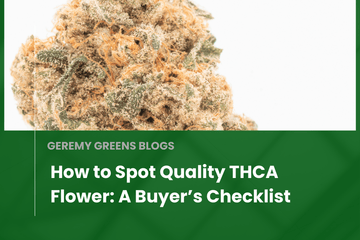
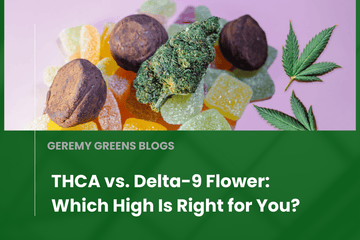
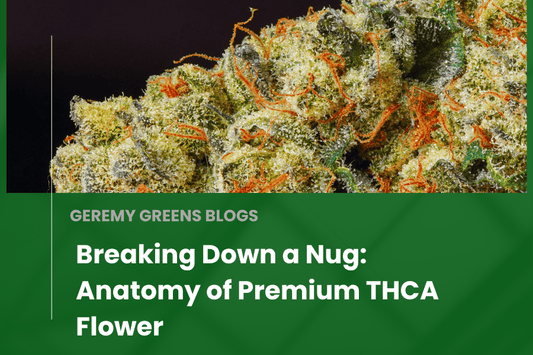
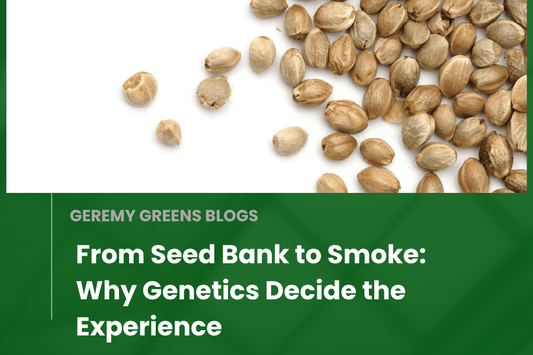
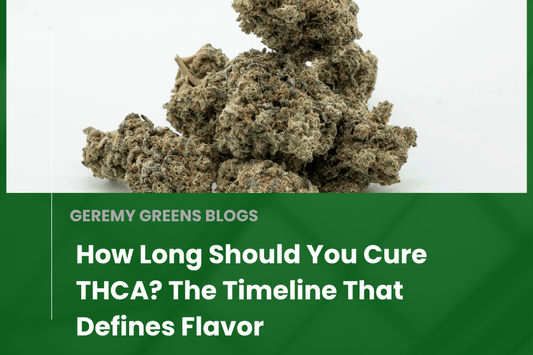



0 comentarios